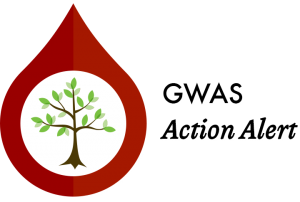Enroll in a Genetic Study
- A study of genetic variations associated with a specific disease like cholangiocarcinoma
- Involves two groups of participants: people with, and people without, the disease
- DNA from a small sample of blood is obtained from each participant
- Results help researchers to develop better strategies for prevention, screening, diagnosis and treatment

Our goal is to have 2,500 volunteers participate in the Genome-Wide Association Study (GWAS).

“We enjoy the shade of a mighty oak tree because someone before us planted it.”
Why participate?
Your participation will help scientists to:
- Inspire progress and find new ways to prevent, detect, diagnose, and treat cholangiocarcinoma
- Discover important genetic risk factors for cholangiocarcinoma that may affect your family
Who can participate?
- Everyone!
- Patients, caregivers, family, friends, co-workers, neighbors – men and women of any age
- You do NOT need to know someone with cholangiocarcinoma . . . we are looking for ALL volunteers!
Who can participate?
- Fill out a consent form and questionnaire
- Give a sample of blood
- Submit your Contact Information Form now. The Study Coordinator will follow-up within a few days.
FAQs & Next Steps
- After you Submit your Contact Information Form, a Study Coordinator will contact you within a few days
- A kit with instructions will be mailed to you
- There is no charge to participate – any costs for drawing the blood will be reimbursed
- The blood sample can be drawn by your family doctor or anywhere in your community; you do not need to go to the Mayo Clinic or any of the other participating institutions
- GWAS participants are not required to provide urine or stool samples or any future blood samples
- Original signatures are required on the Consent Form (only pages 10, 11 & 13 need to be mailed back to the Study Coordinator)
- We will be very happy to answer ALL of your questions:
Nellie A. Campbell
There is a critical need for cholangiocarcinoma research.
Dear Cholangiocarcinoma Foundation Patient Community, I write today to ask for your help. Although this is thought to be a rare disease, cases of cholangiocarcinoma are rising in the US and worldwide. Scientists do not know what causes cholangiocarcinoma or how it can be treated effectively.
Researchers are trying to find individuals who might have a high risk for developing cholangiocarcinoma so they can identify new ways to detect, diagnose, and treat it. Mayo Clinic is one of many institutions participating in a Genome-Wide Association Study (GWAS) for cholangiocarcinoma. We compare DNA from small samples of blood from two groups: people with the disease (you) and people without (your family members or friends).
This helps us to identify important genetic risk factors for cholangiocarcinoma.
There is no cost to you and it is easy to participate by donating a small sample of blood and completing a medical history questionnaire.
Sincerely,
Lewis R. Roberts, M.B. Ch.B., Ph.D Mayo Clinic, Division of Gastroenterology and Hepatology
The Study Coordinator will follow up within a few days.